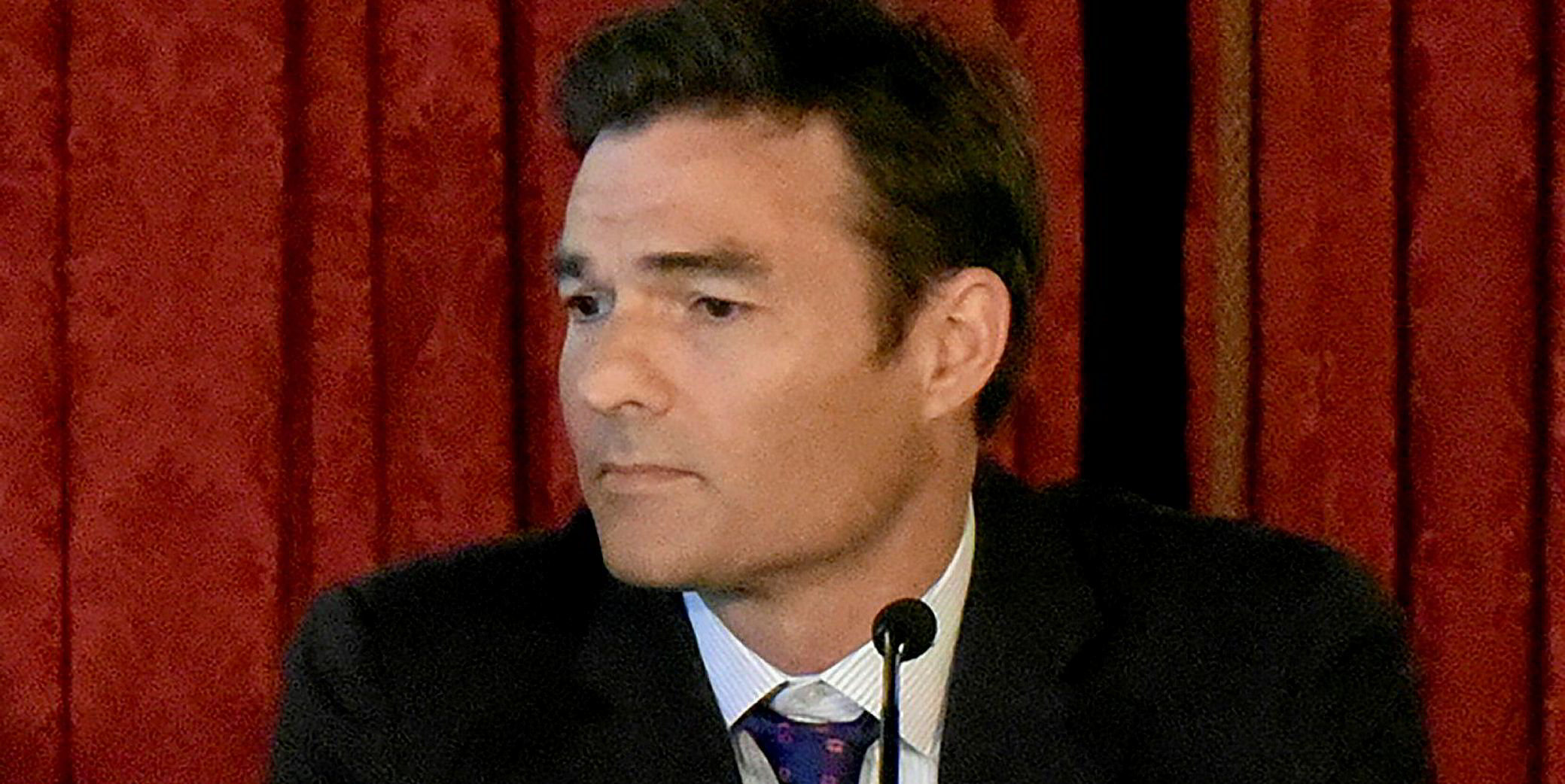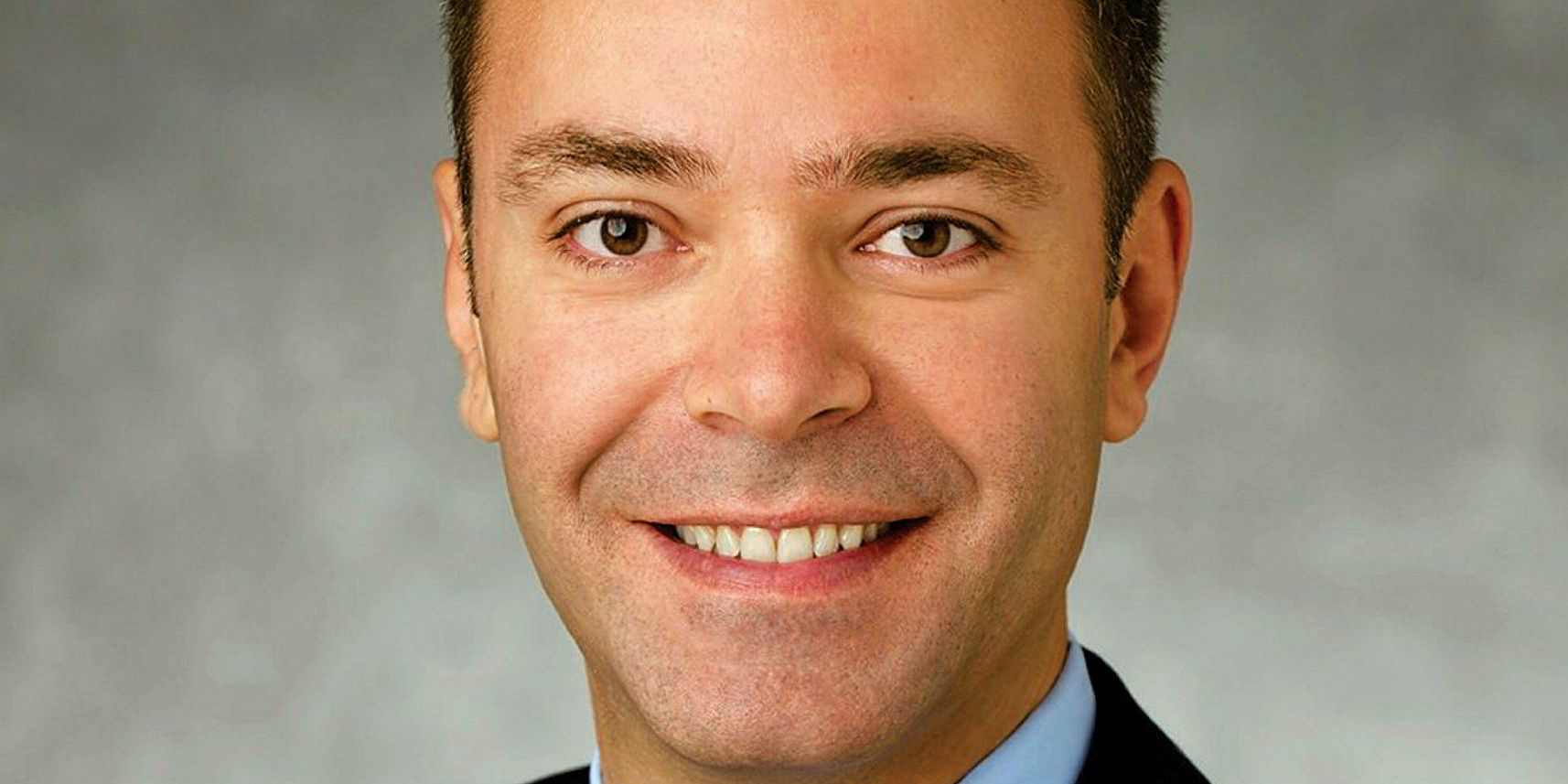The banking side of Morgan Stanley’s shipping business will be challenged going forward by the lack of a dedicated research analyst, but the financier has major advantages that should keep it a viable player in the sector.
That is the consensus of three public shipowning executives interviewed by TradeWinds in the wake of the forced departure of analyst Fotis Giannakoulis from the bank last week.
As TradeWinds has reported, Morgan Stanley wound down the shipping research division and has no plans for a committed analyst in the near term, according to finance sources.
It plans to cover some LNG names through its energy and production staff and perhaps others through transportation personnel.
For a smaller bank, that might prove deadly to further investment-banking business. For Morgan Stanley, probably not.
'Huge placing power'
“They simply have huge placing power,” one public executive said. “So, for example, they can easily do by themselves — or with others — so-called bought deals or primary or secondary offerings. Placement power is more important than research. It is better to have both, of course.”
The changes leave one of the elite shipping-focused investment bankers — managing director Wiley Griffiths — without research support.
“It’s obviously not great for Wiley not to have an analyst,” a second public officer said.
“That said, Morgan Stanley is certainly one of the places you’d call first if you were doing an equity placement. They have a retail sales force that is not equalled by anyone else who is paying attention to shipping, and Wiley has few challengers as a banker.”
Griffiths did not respond to a request for comment before TradeWinds went to press.
The third public executive sounds some of the same themes. He notes that while most companies who hire an underwriter expect research coverage to follow, there can be exceptions.
“You’d prefer that the bank maintains coverage, but there are examples where that’s not been the case,” he said. “If they don’t have coverage, can they still deliver value to the company? If they can execute on the deal better than others, I think they can still get business. It’s just a bit harder.”
The three executives also agreed that whatever happens from here, Morgan Stanley’s conclusion that shipping does not warrant a full-time analyst is a further black eye for an industry that has featured few capital-markets deals, anaemic share prices and poor trading liquidity.
In fairness to the bank, Morgan Stanley has hung in there for several lean years, although this has been helped by Griffiths’ ability to do deals in other transport sectors.
As TradeWinds reported in June 2018, Morgan Stanley had about a 30% share of bookrunner roles — a top underwriting category — on initial public offerings and follow-on deals before 2010.
Mixed fortunes
In the slower market since then, it has been a bookrunner on 60% of the IPOs and 80% of follow-on deals since June last year.
It took the lead on Teekay Corp’s follow-on and convertible notes deal in January 2018, and on Scorpio Tankers’ $200m equity issue in May 2017 to finance its acquisition of Navig8 Product Tankers.
“Spending time in the industry when things are pretty lousy — people appreciate that, I think,” Griffiths said last summer. “It’s been pretty quiet since the world economic collapse, but I’m hoping we’re coming into a healthier IPO environment over the next 24 months.”
Yet there has not been a successful shipping IPO since Gener8 Maritime went public in June 2015.
Morgan Stanley took a swing and a miss, leading GoodBulk’s unsuccessful IPO attempt in New York last June. Worse, it became entangled in controversy for completing a follow-on raise by Star Bulk on top of GoodBulk’s deal.
If more deals do start to come forward, Morgan Stanley is saying privately that it could move quickly to hire a new analyst, the second executive said.
“And, given the status of other investment banks that have let go of analysts, they feel they might be able to hire one quickly,” he said.






